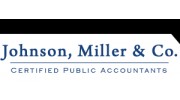Lawrence Prucka
Accountant in Midland, TX
 On this website, you'll find information about Lawrence Prucka, C. P. A. P. C. Including our list of services. We currently have provided you with online resources to help in the tax process and financial decision-making. These tools include downloadable tax forms and publications, financial calculators, news and links to other useful sites. Whether you are an personal or business in or around Midland, Lawrence Prucka, C. P. A. P. C. Has years of valuable experience assisting specialists with their accounting requirements.
On this website, you'll find information about Lawrence Prucka, C. P. A. P. C. Including our list of services. We currently have provided you with online resources to help in the tax process and financial decision-making. These tools include downloadable tax forms and publications, financial calculators, news and links to other useful sites. Whether you are an personal or business in or around Midland, Lawrence Prucka, C. P. A. P. C. Has years of valuable experience assisting specialists with their accounting requirements.
Contact Details
From Website
About Us
read moreFor years, Lawrence Prucka, C.P.A., P.C. has been providing quality, personalized financial guidance to local individuals and businesses. Lawrence Prucka, C.P.A., P.C.'s expertise ranges from basic tax management and accounting services to more in-depth services such as audits, financial statements, and financial planning. Lawrence Prucka, C.P.A., P.C. is one of the leading firms in and throughout Midland. By combining our expertise, experience and the team mentality of our staff, we assure that every client receives the close analysis and attention they deserve.
Lawrence Prucka
read moreLawrence Prucka P.C. Certified Public Accountant provides a wide range of services to individuals and businesses in a variety of industries. At Lawrence Prucka P.C. Certified Public Accountant, we strive to meet each client's specific needs in planning for the future and achieving their goals in an ever-changing financial and regulatory environment. At Lawrence Prucka P.C. Certified Public Accountant, we guide our clients through a full range of tax planning and preparation decisions with strategies that minimize your tax liabilities, maximize your cash flow and keep you on track to your financial goals.
Lawrence Prucka
read moreIt depends on factors such as 1) what kind of deal you can make with the dealership, 2) the typical mileage you put on your car, 3) how much you wear down a car, and 4) the primary use for the car. To determine whether leasing or buying is best, compare the costs and other issues involved in a lease or purchase. You first need to decide on the type, size and options of the car you would like (such as manual, automatic windows, airbags). You then need to decide what the car dealer has to pay for the car of your choice - the "invoice cost".
Lawrence Prucka
read moreHave you just started a new business? Did you know expenses incurred before a business begins operations are not allowed as current deductions? Generally, these start up costs must be amortized over a period of 180 months beginning in the month in which the business begins. However, based on the current tax provisions, you may elect to deduct up to $5,000 of business start-up and $5,000 of organizational costs paid or incurred. The $5,000 deduction is reduced by any start-up or organizational costs which exceed $50,000.
Lawrence Prucka
read moreApril 15 has come and gone and another year of tax forms and shoeboxes full of receipts is behind us. But what should be done with those documents after your check or refund request is in the mail? Federal law requires you to maintain copies of your tax returns and supporting documents for three years. This is called the "three-year law" and leads many people to believe they're safe provided they retain their documents for this period of time. However, if the IRS believes you have significantly underreported your income (by 25 percent or more), it may go back six years in an audit.
Lawrence Prucka
read moreFollowing are some generally recognized financial planning tools that may help you reduce your tax bill. Charitable Giving - Instead of selling your appreciated long-term securities, donate the stock instead and avoid paying tax on the unrealized gain while still getting a charitable tax deduction for the full fair market value. Health Savings Accounts (HSAs) - If you have a high deductible medical plan you can open an HSA and make tax deductible contributions to your account to pay for medical expenses.
Lawrence Prucka
read moreInformation and interactive calculators are made available to you as self-help tools for your independent use and are not intended to provide investment advice, or supplement the advice of a professional advisor. There is not and can not be a guarantee of their applicability or accuracy in regards to your individual circumstances. All examples are hypothetical and are for illustrative purposes. You are encouraged to seek personalized advice from qualified professionals regarding all personal finance issues.
Lawrence Prucka
read moreIf you have a large capital gain this year from an investment, it may be advisable to hold onto the investment until next year to put the gain into next year's taxes. You may also want to sell off any investments that you have that are losing value at the moment to claim your losses. The interest gained from state and local bonds is usually exempt from federal income taxes. These investments generally pay back at a lower interest rate than commercial bonds of similar quality. Since Treasury Bonds are similarly exempt from state and local income tax, they can be a particularly good investment for those who are in high tax brackets and live in high-income-tax states.



